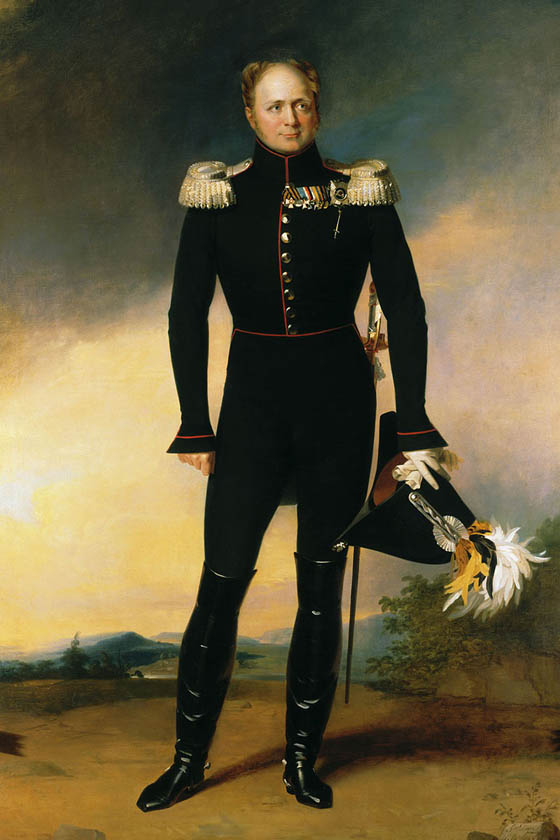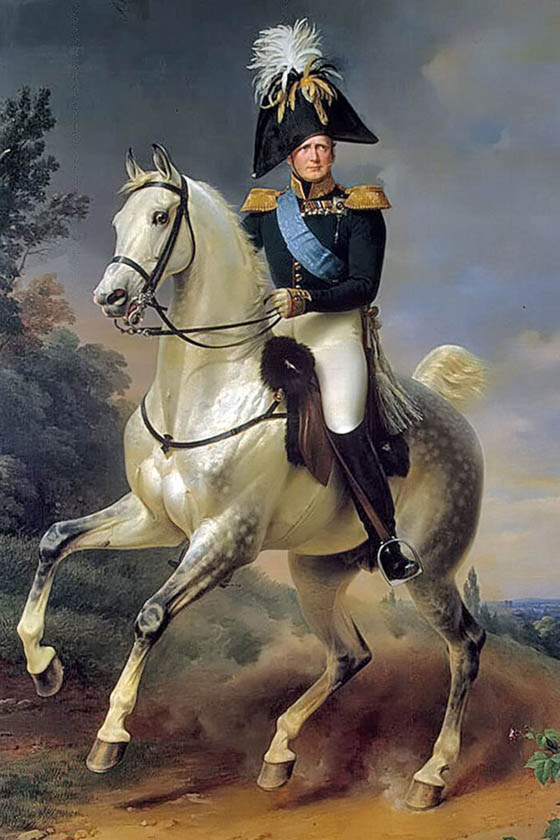Alexander I was the first ruler in Russia, who decided to reform the country’s political system by creating a Constitution, which would guarantee the rights and freedoms to its citizens. Alas, it failed to be implemented. In 1820, they had developed a project named the “State Charter of the Russian Empire”, but its approval was postponed.
He was born on December 12th (23), 1777 in St. Petersburg. The tenth Russian emperor, he ascended the throne as the elder son of Pavel I after his father died. His mother was the Grand Duchess Maria Fedorovna, his spouse Elizaveta Alekseyevna (Louisa Badenskaya).
The coronation ceremony took place on September 15th (27), 1801, and he ruled until his death caused by abdominal typhoid in Taganrog, Russia, on November 19th (December 1st), 1825. There is a legend that not the emperor, but his double died and was buried in Taganrog, while Alexander I had for a long time lived as a hermit under the name of “Fyodor Kuzmich” in Siberia and died only in 1864, but there are no documentary proofs of it. He was succeeded on the throne by his brother Nikolay I.
Main events during the rule of Alexander I (1801-1825):
- 1805-1807 — participation in the Anti-French coalition with Prussia and Austria (the first wars against the Napoleon Empire)
- December 2nd, 1805 – Battle of Austerlitz
- 1804-1813 – Russian-Persian War
- 1806-1812 – Russian-Turkish War
- June 25th, 1807 – signing of the Treaty of Tilsit with France
- 1807-1811 – temporary rapprochement with France
- 1808-1809 – Russian-Swedish War
- 1812 – Patriotic War with the French Empire
- 1813-1814 – Alexander I headed the Anti-French coalition of the European powers
- 1814-1815 – acted as one of the heads of the Vienna Congress and the organizer of the Sacred Union
- 1817 – beginning of War in Caucasus (ended in 1864).
Alexander I gave the Constitution to the Kingdom of Poland, which guaranteed freedom of press, personal immunity, and creation of a two-chamber Sejm. This Constitution was to become a trial balloon for introducing a Constitution in Russia. After the revolt in 1830, the Constitution in Poland was abrogated.

